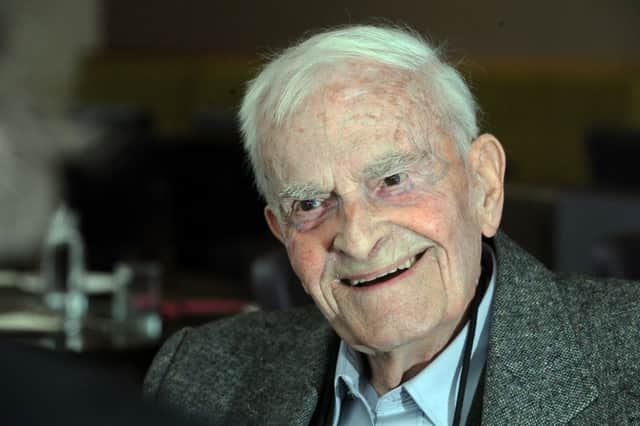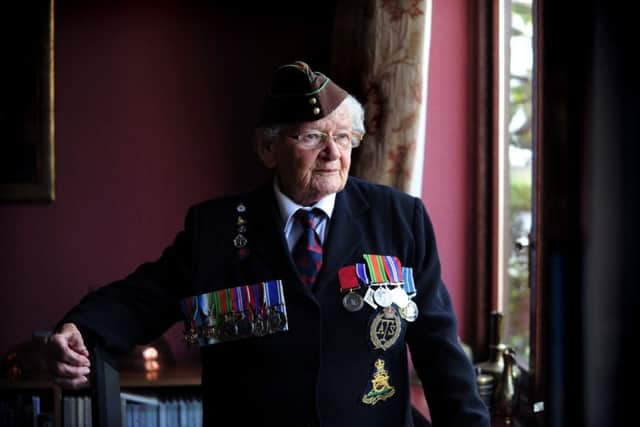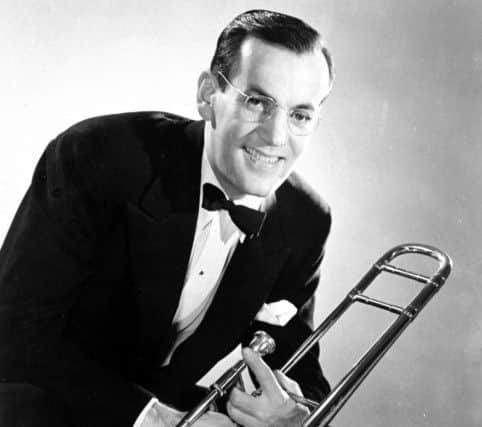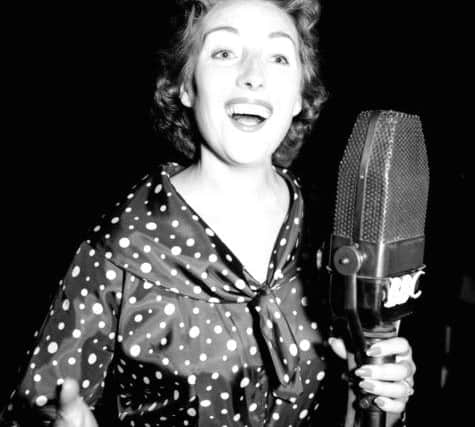How songs and music brought hope in the dark days of the Second World War


“WE’LL meet again
Don’t know where
Don’t know when


But I know we’ll meet again
Some sunny day...”
It’s almost impossible to hear these words and not get a little misty-eyed. Of all the great songs that helped people endure the darkest days of the Second World War, perhaps none have quite the same emotional resonance as We’ll Meet Again.
The woman who sang these immortal lyrics, Dame Vera Lynn, celebrates her 100th birthday on Monday, just three days after releasing a new album which features many of her best-known songs that have been re-orchestrated using some of her original vocals.


Advertisement
Hide AdAdvertisement
Hide AdLynn’s career spans more than 80 years but it’s her wartime songs that made her a household name. During the war she had her own BBC radio programme broadcasting to the British troops abroad, though the singer – dubbed ‘the Forces’ Sweetheart’ – wasn’t the only person whose music helped sustain a beleaguered nation through the Blitz. The likes of Flanagan and Allen, the Andrews Sisters, Glenn Miller, and many more, helped lift people’s spirits when they were at a particularly low ebb.
Martin Nicholson has a vivid wartime memory from when he was stationed at Redhill airfield as an Air Transport Auxiliary (ATA) pilot. “It was a quiet summer’s evening and it was within a few days of the appearance of the first V-1 rocket, or ‘doodlebug’ as it became known.
“There was a lot of discussion about how we should tackle this new menace because our initial attempts had not been very successful. I can clearly recall rows of tents at the airfield and from one of them I could hear Clair de Lune which cut through the eerie silence.
“Somebody had a gramophone and then we heard Vera Lynn singing A Nightingale Sang in Berkley Square which had a great effect, there wasn’t a dry eye within earshot. A song doesn’t normally do that but in this moment it really moved all of us.”


Advertisement
Hide AdAdvertisement
Hide AdMartin, 92, from Otley, says Dame Vera Lynn’s songs held a particular resonance for many people. “The words had time to sink in and they had a simple message that struck a chord with people.”
Elizabeth Peacock, former Conservative MP for Batley and Spen, was a child during the war. “This takes me back to the middle of Skipton where we lived at the time. Our house was by today’s standards primitive with no bathroom, no inside toilet and no electricity but it did have gas lighting,” she recalls.
“Without electricity we did not have a radio so daily music was somewhat absent. Luckily being near the town centre we could regularly hear the Salvation Army band playing in the High Street. They did a great job cheering us up with rousing tunes and patriotic marches. Hence, my lifelong support of their work and brass bands in general.”
Barbara Weatherill, 91, who lives in Barlby, near Selby, worked as an Army driver during the war. She says music boosted people’s morale. “There was no TV in those days and radio was quite limited so music became very popular whether you were a civilian or in the military. Big bands like Glenn Miller’s were very popular and so was Ted Heath and his band. Vera Lynn topped the bill and there were others like Anne Shelton, who was a lovely singer,” she says.


Advertisement
Hide AdAdvertisement
Hide Ad“A lot of husbands and wives and sweethearts were separated during the war and music, especially the more sentimental songs, were very popular. They held people together.”
There were also more high tempo singing groups like The Andrews Sisters, best known for songs such as Don’t Sit Under The Apple Tree and Boogie Woogie Bugle Boy, with their popular mix of swing and boogie-woogie, and later their British counterparts The Beverley Sisters who emerged towards the end of the war. “Songs were a bit of welcome escapism. They took you out of yourself for a moment,” says Barbara.
She spent time stationed near Rotherham where entertainment was in short supply. “You could be quite isolated if you weren’t in one of the big cities and where I was based we didn’t get any entertainment.”
The exception was at weekends when she was able to travel to Sheffield. “I used to get free tickets to go to Sheffield City Hall for their Sunday afternoon concerts. I saw the London Symphony Orchestra and the Halle Orchestra and some of the big bands, it was wonderful.”
Advertisement
Hide AdAdvertisement
Hide AdHer favourite song and that of her fiancée (and later husband) was Glenn Miller’s In The Mood. “We loved that, it was such a great, bouncy thing. When we got leave together we would go to this little cinema and as soon as we walked in the manager would put that on for us.”
For Barbara these songs hold a special place in her affections. “When I hear those old wartime songs the memories come flooding back and it’s the same with everyone from my generation, your ears prick up. It binded people together and helped build that wonderful wartime spirit, a spirit that existed among total strangers.”


Barnsley-born Harry Smith, 94, was an RAF wireless operator during the war, and for him music was something of a godsend. “They say an army marches on its stomach but because soldiers are in the bloom of youth, they need the music of their generation to feed their souls.
“This was certainly the case for my contemporaries and me during the Second World War. It’s why songs from the big bands of Benny Goodman and Tommy Dorsey, or the songs of Gracie Fields or Vera Lynn, evoke in me today memories of the war and the months that preceded it.
Advertisement
Hide AdAdvertisement
Hide Ad“There is no question in my mind that singers like Vera Lynn gave comfort to those in service and those who maintained the home front. I know it did to me and my mates. What was also unique from that era and that terrible war is the song Lilli Marlene which was popular on both sides of the conflict because it was about love and the futility of war.
“Popular music played a great part in defining who we were as a nation. That’s why A Nightingale Sang in Berkeley Square, The White Cliffs of Dover and We’ll Meet Again stuck in the consciousness of the nation. It gave us hope, a feeling of being connected to our country and everyone who inhabited it, but they also made us long for better days. I know it would have been harder to endure the war without the boost this music gave us.
“You have to remember that the music of the Second World War was made for young people and spoke directly to us. There was nothing better or more fun for me when I was in the RAF than when dances might be arranged for our unit while we were still in training.
“We’d be able to meet some girls, forget the war and dance to the music of the Glenn Miller Band, Vera Lynn and Gracie Fields. All of the music from the war made the battle against Hitler a little more bearable,” he says.
Advertisement
Hide AdAdvertisement
Hide Ad“When the war ended my unit was in Hamburg, it was a beautiful spring day with the flowers in bloom and I remember getting quite emotional when at the official Victory in Europe party we all broke into a rendition of We’ll Meet Again, because we’d survived the war.”
Songs that helped unite a nation
Run Rabbit Run – This was a popular song during the war, especially after Flanagan and Allen changed the lyrics to poke fun at the Germans.
In the Mood – Recorded by American bandleader Glenn Miller this was one of the most popular songs of the war.
(There’ll Be Bluebirds Over) The White Cliffs of Dover – A popular wartime song made famous by Vera Lynn with her 1942 version.
Advertisement
Hide AdAdvertisement
Hide AdWish Me Luck as You Wave Me Goodbye – This song was popularised by Gracie Fields and though it didn’t mention the war the intimation was clear.
We’ll Meet Again – Moving, evocative and simple this is surely the greatest wartime song ever written.